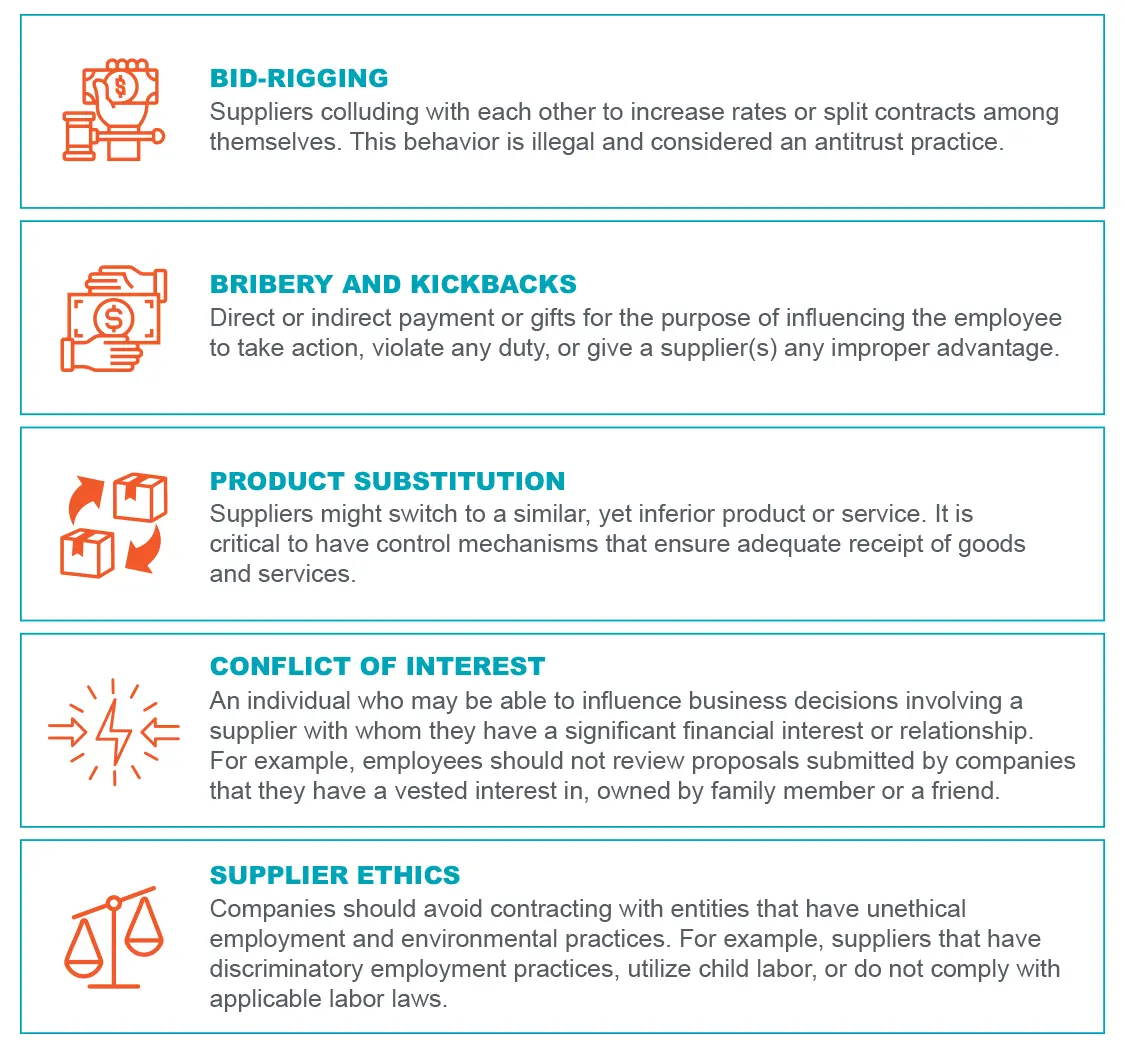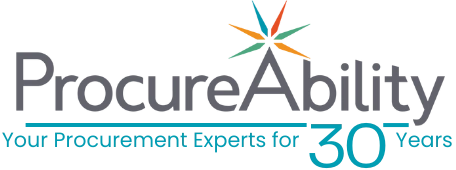
In today’s fast-paced and increasingly complex corporate environment, procurement teams make thousands of decisions. These decisions can directly affect a company’s financial health and reputation. While most teams approach this responsibility ethically and legally, the sheer scope of their decisions also increases the risk of fraudulent behavior. In this blog, we will first explore the main types of procurement fraud. Then, we will explain how to identify them. Finally, we will discuss strategies to minimize the potential for fraud in your organization.
What is Procurement Fraud?
Procurement fraud can take a variety of forms, from bid-rigging to supplier ethics. Here are some of the most common, and most damaging unethical procurement practices:

How to Identify and Limit Procurement Fraud
ProcureAbility advises companies to routinely review major areas of spend and audit procurement decisions. Additionally, organizations should establish protocols for governance reviews. These protocols should trigger during routine direct awards, change orders, project overruns, or significant increases in supplier spend. To help identify and limit procurement fraud, we recommend three key actions:
- Create a Governance Committee: First, establish a committee that includes key stakeholders from multiple organizational units, such as Finance, Supply Management, and IT. Then, ensure this committee develops policies and safeguards designed to prevent unethical or potentially illegal procurement behavior.
- Focus on Education: Regularly conduct instructor-led or self-guided training to keep procurement professionals and other internal stakeholders up to date on your company’s sourcing, ethics, and compliance policies.
- Invest in Fraud Mitigation: Companies should invest in tools and technologies that help employees detect fraud. At the same time, employees should be both challenged and incentivized to remain vigilant and report any activity that violates laws, regulations, or the organization’s legal requirements.
US Federal Government Oversight
In November 2019, the Department of Justice announced the formation of the Procurement Collusion Strike Force (PCSF). This coalition has since been tasked with deterring, detecting, investigating, and prosecuting antitrust crimes. Such crimes include bid-rigging and other fraudulent activities that undermine competition on government procurement organizations.
In June 2021, the PCSF secured its first international indictment. This involved a Belgian security services company that pled guilty for bid-rigging on contracts for the U.S. Department of Defense. The Belgian company and its co-conspirators were involved in a bid-rigging scheme. They had agreed among themselves to determine which contractor would win a specific contract and who would decline to bid. This act resulted in a guilty plea, the resignation of multiple senior officers, and an astounding $15 million fine.
All companies should actively embrace and adopt ethical procurement principles. Furthermore, by focusing on education and detection, procurement organizations can not only build but also maintain the trust of stakeholders, suppliers, and regulatory agencies. On the other hand, if companies fail to uphold ethical standards, they may face hefty fines as well as significant damage to their public image.
To stay ahead of procurement fraud before any losses occur—contact our team today.



